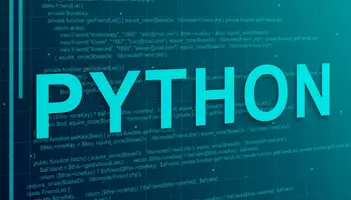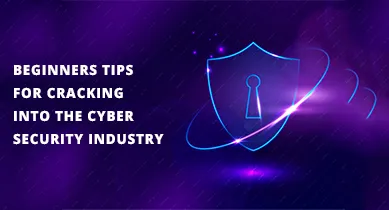Cyber Security Course Delivered by Industry Experts with 60 Hrs of Applied Learning
Become a Certified Cyber Security Professional in 6 weeks.
2000+ Ratings
3000+ Happy Learners
Cyber Security Videos
Skills Covered in Cyber Security
Cyber Security Training Key Features
Our Alumni Working in Cyber Security




































Cyber Security Course Reviews
I have taken cyber security course in the institute. It was a great experience in learning with clear n simpler teaching with real time experience. It was worth my time and effort. Great place to start up the course.
Well established training institute experienced faculty, practical training every day. I have learnt a lot of things in ethical hacking.very friendly managementbest institute for learning
one of the best cyber security institute where if u notice the trainers will mould you in a way that u will be able to compete with the experienced counterparts in the corporate field.highly recommendable
Best coaching institute for completing Cyber security certification. Good ambiance and coaching with very friendly staff. I completed my cyber security . Vikas sir is talented and experienced in the field.
Great training for Cyber Security course. The Course is very affordable and teaching is excellent even a beginner man can understand. A Beginner can become expert in Cyber Security if learnt from Apponix. I recommend Apponix for training. Have a Aim, Apponix will support you to achieve it.
Our Recent Placements
Classroom Training
Classroom Training


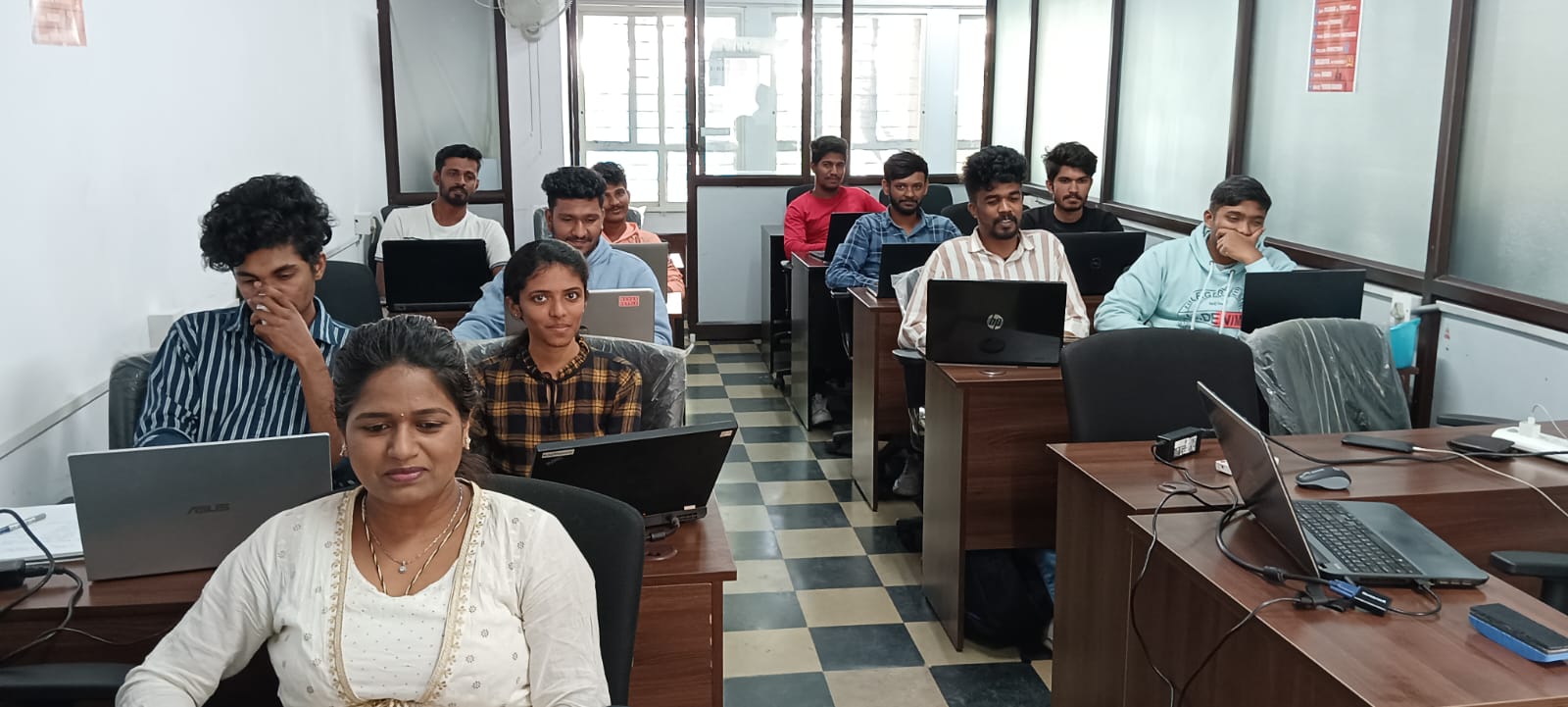
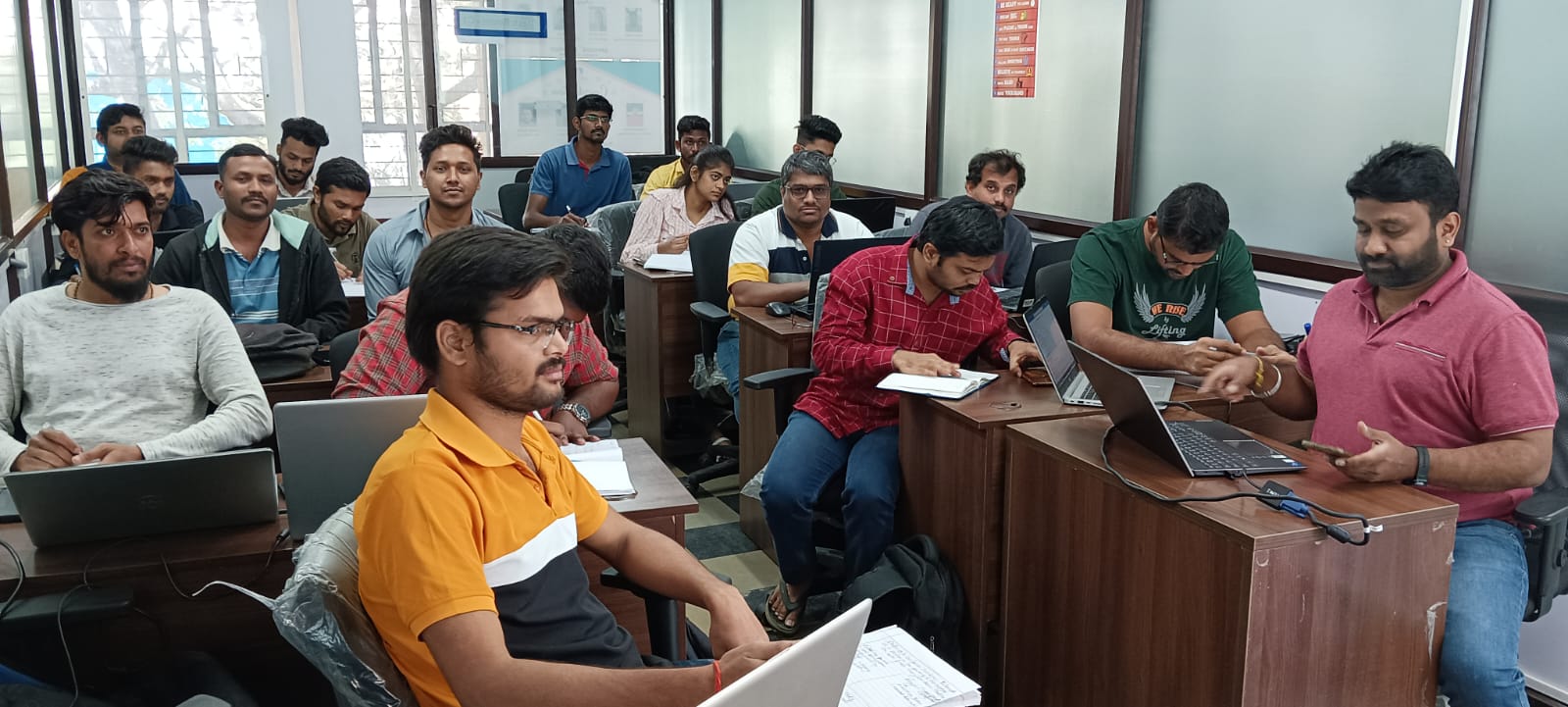





Fees & Training Options
Online Training
- Interactive Live Training Sessions
- 60+ Hrs Practical Learning
- Delivered by Working Professionals
- Mini Hacking Projects
- 1 Year Access to Recorded Sessions
- Cyber Security Certification Assistance
- Placement assistance will be provided
- Guaranteed 3 Interview Arrangements
- Daily 2 Hrs or Weekend 10 Hrs
- Regular assignments will be given and assessments will be taken.
Cyber Security Training Syllabus
Eligibility
This cyber security training is ideal for beginners & IT professionals who want to pursue a career in this promising and emerging sector.
The cyber security course we offer here at Apponix is meant for both mid level & experienced professionals.
Cyber Security Course Syllabus
- CIA Triad, Separation of Duties, Org Structure, Top Down and Bottom-up approach
- Recovery Time Objective/Recovery Point Objective/Maximum Tolerable Downtime, SLA
- Disclosure, Alteration and Destruction of Data
- Identification, Authentication, Authorization, Accountability and Auditing
- Introduction to corporate Governance, Strategic, Tactical and Operational Plans, Policies, Standards, Procedures and Guidelines
- Data Layering, Abstraction, Data Hiding, Encryption
- Confidential, Sensitive, Top Secret, Private, Public, Unclassified
- Asset Management, Threat and Vulnerability, Threat, Threat Agent, Exploit, Quantitative and Qualitative Risk Assessment
- Assessment, Analysis, Mitigation and Response
- ISO27001, ISO31000, ISO27000, Steps involved in risk management framework
- Preventive, Detective and Corrective controls
- STRIDE
- DREAD
- Contingency Plans, BCP documentation and DR documentation, Types of tests
- Criminal, Civil and Administrative laws, Computer Security Act, Computer Fraud and Abuse Act, Government Information Security Reform Act, Federal Information Security Management Act
- PCI-DSS, GDPR, HIPAA, Hi-Trust, SOX, ISO series etc.
- Copyright, Trademark, Patents, Trade Secrets
- Data in Use, Data in Rest, Data in Transit, Data Custodian, Data Processor, Data Controller, System owners, Administrators, End Users
- Sanitize, Degaussing, Erase, Overwrite
- Zachman Framework, Sherwood Applied Business Security Architecture (SABSA), Information Technology Infrastructure Library (ITIL), State Machine Models, Multilevel Lattice Models, Information Flow Models
- Device Encryption
- Remote wiping
- Remote lock out
- Internal locks (voice, face recognition, pattern, pin, password)
- Application installation control
- Asset tracking (IMIE)
- Mobile Device Management
- Removable storage (SD CARD, Micro SD etc.)
- Network Segmentation (Isolation)
- Logical Isolation(VLAN)
- Physical isolation (Network segments)
- Application firewalls
- Firmware updates
- Various threats to Physical Security
- Guest OS, Virtualization Threats, Cloud Computing Models, Cloud Computing Threats
- OWASP, OWASP Top 10, SQL Injection, XSS, CSRF
- Goals of Cryptography, Symmetric and Asymmetric Encryption, Decryption, Digital Signature, Hashing, Cryptography Algorithms (DES, AES, IDEA, two fish)
- OSI Model, Attacks in OSI Layers, Network Types, Network Methods and Standards, Hardware devices, VPN protocols,
- Firewall, Types of Firewalls, DMZ, Honey Pot, Honey Net
- Virus, Worms, Logic Bomb, Trojan, Backdoor, Sniffing, Zero Day attack, Ransomware, Rootkit, Spyware, DoS, DDos, Botnet etc.
- LDAP, SASL, S/MIME
- 3 factor authentication, SSO, Authorization, Federated Identity, Access Control Models, Access Control Categories, Access control types
- Steps involved, Test Types, Test Strategies, Reporting
- Development Models, Development lifecycle, Testing types, Code review and testing
- Evidence Life Cycle, IDS, IPS, Backup, SIEM, Hardening Process
- Cyber Kill Chain Process, Mitre Attack framework, Threat Hunting benefits
- Phishing, Spear Phishing, Whaling, Piggybacking, Watering Hole
- Assessment and Knowledge test
- Viva and Interview preparation
- Introduction to SOC
- SOC Roles and Responsibilities, SOC Tiers (Tier 1, Tier 2, Tier 3)
- Key SOC Tools and Technologies
- SIEM Basics
- Log Collection, Normalization, Correlation, and Reporting
- Key SIEM Components (Log Sources, Correlation Rules, Dashboards)
- Popular SIEM Tools (Splunk, IBM QRadar, Microsoft Sentinel, ArcSight)
- Threat Detection and Incident Response
- Common Cyber Threats, Threat Intelligence Integration in SIEM
- Incident Response Process (Identify, Contain, Eradicate, Recover)
- Hands-on: Analyzing a Simulated Security Incident in SIEM
- Introduction to Cloud Security
- Cloud Computing (IaaS, PaaS, SaaS), Shared Responsibility Model
- Cloud Security Challenges
- Cloud Security Best Practices
- Identity and Access Management (IAM), Encryption, Network Security (NSG, Firewalls, WAF)
- Cloud Threats and Compliance
- Common Cloud Security Threats (Misconfigurations, Data Breaches, Privilege Escalation)
- Compliance Frameworks (CIS Benchmark, NIST, ISO 27001, GDPR)
+91-80505-80888
Projects covered
Exploiting Vulnerable Services and PenTest
To simulate a real-world penetration test and exploit vulnerable services and documenting the entire attack lifecycle.
Malware Behavior Analysis and Detection Using Static & Dynamic Techniques
Analyze a real or sample malware file to identify behavior, Indicators of Compromise (IoCs), and persistence mechanisms.
Simulating a SOC Workflow with Incident Detection and Response using SIEM
Simulate a basic SOC operation with log ingestion, detection rules, incident ticketing, and response actions using a SIEM tool.
Our Top Instructors
Overview of Cyber Security Training Course
- Cyber security certification training is a specialized program that helps individuals develop the necessary skills and knowledge to protect computer systems and networks from unauthorized access or malicious attacks. Our program is designed and delivered by experienced trainers who are experts in the field.
- During the course, participants will learn about various security threats, vulnerabilities, and attack techniques, as well as methods for prevention, detection, and response. The program covers a wide range of topics, including network security, information security, risk management, and compliance.
- Upon completion of the program, participants will be equipped with the knowledge and skills required to secure computer systems and networks effectively. Our certification training is an excellent choice for professionals who want to advance their careers in the field of cyber security or for organizations looking to strengthen their security posture.
Benefits of learning Cyber Security
- Improved Knowledge and Skills: A Cyber Security certification course provides individuals with the necessary knowledge and skills to become experts in the field, enabling them to secure computer systems and networks from various threats effectively.
- Career Advancement: Having a Cyber Security certification demonstrates to employers that you possess the required knowledge and skills to secure their organization's computer systems and networks, opening up new career opportunities and increased earning potential.
- Recognition: A Cyber Security certification is a globally recognized standard that validates your expertise in the field, increasing your credibility and professional reputation.
- Reduced Risk: With the knowledge and skills gained from a Cyber Security certification course, individuals can identify and mitigate potential security threats, reducing the risk of data breaches and other cyber attacks.
- Regulatory Compliance: Organizations must adhere to various regulatory requirements concerning information security. A Cyber Security certification course equips individuals with the necessary knowledge and skills to help their organization comply with these requirements.
Related job roles
- Network Security Engineer
- Cyber Security Analyst
- Security Architect
- Ethical Hacker
- IT Security Analyst
- Cyber Security Manager
- Information Security Officer
Cyber Security Courses
What is the career scope for cyber security?
The demand for cybersecurity professionals is always at an all-time high in the world, It's really a good career choice now.
Cybersecurity professionals get an average of $119,000 per year.
No of unfilled jobs growing every year due to a lack of security professionals.
Is getting this course certification a good idea?
Every sector of the global economy now has a presence on the Internet. This is the reason why cyber attacks and cyber espionage is also increasing with each passing day.
Hence, the demand for cyber security specialists is also increasing by many folds and will continue in this manner which means with this training, you will be able to secure a high-paying job with ease!
Reasons to consider a cyber security career
- Practically unlimited growth
- Plenty of variety
- Plenty of job opportunities
- excellent salaries in India & Abroad
It is easy for cyber attackers to destroy the data of government, defense, and banks which are of quintessential importance and may cause serious national problems. Thus, it is necessary to have strong digital Security to protect the data from digital wrongdoings.
What are the prerequisites for this course?
- No prerequisites are required for the Cyber security certification course. A basic knowledge of computers or networking is more than enough.
4 Reasons to consider a cyber security career
- Practically unlimited growth
- Plenty of variety
- Plenty of job opportunities
- excellent salaries in India & Abroad
It is easy for cyber attackers to destroy the data of government, defense, and banks which are of quintessential importance and may cause serious national problems. Thus, it is necessary to have strong digital Security to protect the data from digital wrongdoings.
Importance of Cybersecurity Essentials
In the current global environment where digital technologies focus on each corner of life, the distinction of cyber security has become more significant. The range of targets, as businesses, governments, and individuals utilize digital systems for communication, commerce, and data storing beyond the imagination. Providing basic training about cybersecurity is necessary as far as safeguarding confidential data and preventing cyber threats are concerned. With digital threats and cyberattacks on the rise, Apponix Academy is the perfect place to begin a cybersecurity career an experienced professional looking to expand your skills. With this academy's knowledge and infrastructure, anyone will have the expertise to handle cybersecurity correctly.
Here's an overview of what you can expect to learn from a cybersecurity course at Apponix Academy:
- Fundamentals of Cybersecurity: This course will start with an elementary introduction to Cybersecurity basics, including confidentiality, integrity, availability triad (CIA triad), the most common cyber threats, and the risk management importance.
- Security Architecture and Design: In the class, students explore designing safe networks and network architecture, including safety measures like secure network architectures, secure system designs, and control strategies to implement best practices.
- Network Security: The course provides a broad network security overview consisting of the following elements: firewalls, intrusion detection systems (IDS), intrusion prevention systems (IPS), virtual private networks (VPNs), and secure protocols.
- Operating System Security: Students will be able to master how to harden OS kernels against the most common threats and vulnerable points. Here, we can generalize that cyber security involves encryption, restricted access, secure configurations, patch management, and endpoint security.
- Secure Software Development: The students grasp knowledge like secure software design principles, secure coding techniques, weakness assessment exercising and secure software lifecycle management.
- Ethical Hacking and Penetration Testing: While students can learn hackers' mental makeup and procedures through ethical hacking or penetration testing, these labs are just a fraction of their preparation. This includes lab and hand exercises that help comprehend and identify security vulnerabilities and exploit the systems and networks.
Here are some benefits of taking a cybersecurity course:
1 Skill Development:
Cyber hacking lessons develop your foreknowledge for guarding computer systems, networks, and data of your system from hazards originating from cyberspace. Besides the multiple security tools and techniques you will be taught to handle, there are also recommended guidelines for safe practices.
2 Career Opportunities:
The demand for security personnel is growing rapidly in the professional market. Therefore, after passing a cybersecurity course, you can get a great offer for your career. You can look for a job opportunity in cyber security, where you can work as a cyber security analyst, ethical hacker, security engineer or security consultant.
3 Hands-on Experience:
Many cyber-security courses allow you to utilize practical labs offering exercises designed to apply theoretical knowledge in real-world situations. In addition to being involved in this kind of operation, this practical exercise improves your comprehension and skills and your performance through cybersecurity techniques.
4 Networking Opportunities:
In the cybersecurity classes, you can benefit from the availability of industry experts and professionals, instructors, and fellow participants. Using personal networks to discuss things with people in the industry may help you grow by sharing information, exploring ideas, and forming bonds with colleagues relevant to your profession.
5 Personal Growth:
Besides, being in cybersecurity as a course focuses on developing the student's technical skills and creating personal growth. Developing these most vital skills will enhance your strategic thinking, problem-solving, and ability to make sound decisions, which will be vital in your professional and personal life.
Job Roles After Cyber Security Course:
- Cybersecurity Analyst: As a cybersecurity analyst, you will be tasked with monitoring and analyzing events that are related to security, detecting threats, and then implementing measures that will ensure that an organization’s systems and data are protected.
- Security Engineer: The security engineers plan, put into practice, and maintain security safeguards, e.g. firewalls, intrusion detection systems, and encryption protocols. Furthermore, they screen for malicious activity or vulnerabilities by conducting security assessments and audits.
- Security Consultant: Security experts likewise propose technical solutions related to cybersecurity strategy, risk management, and compliance for organizations to make networks safe. They evaluate the organizations' security posture, develop security policies, and suggest security solutions.
- Cybersecurity Manager/Director: As cybersecurity managers or directors, their main task is to implement an effective cybersecurity plan, and the program will fully cover the entire organization. They devise security strategies, handle surveillance units, and meet required industry regulations and standards.
- Digital Forensics Analyst: Digital forensic investigators uncover clues of cybercrimes and security problems by gathering electronic traces. This is followed by sorting, interpreting, and collecting said evidence. They utilize analytical tools and methodology to figure out what the cause of security leakage is and how wide the scope of it.
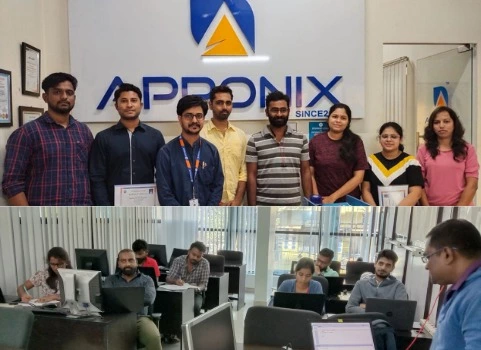
Best Cyber Security Course Online
What is the career scope for a cybersecurity specialist in the US?
According to Indeed.com, at any given point in time, there are more than 40,000 jobs in the US for a skilled cybersecurity expert.
NASSCOM reported that more than a million cyber security jobs available in India itself. and every year more than 100% jobs getting increased worldwide.
How can my career get a boost from this course?
With this training course, you will be able to gain knowledge about all the aspects of the cyber security sector.
We at Apponix have bundled all critical skill sets required by industry into the curriculum, we have formulated for this course so that you become job-ready as soon as you get the course completion certificate from us.























